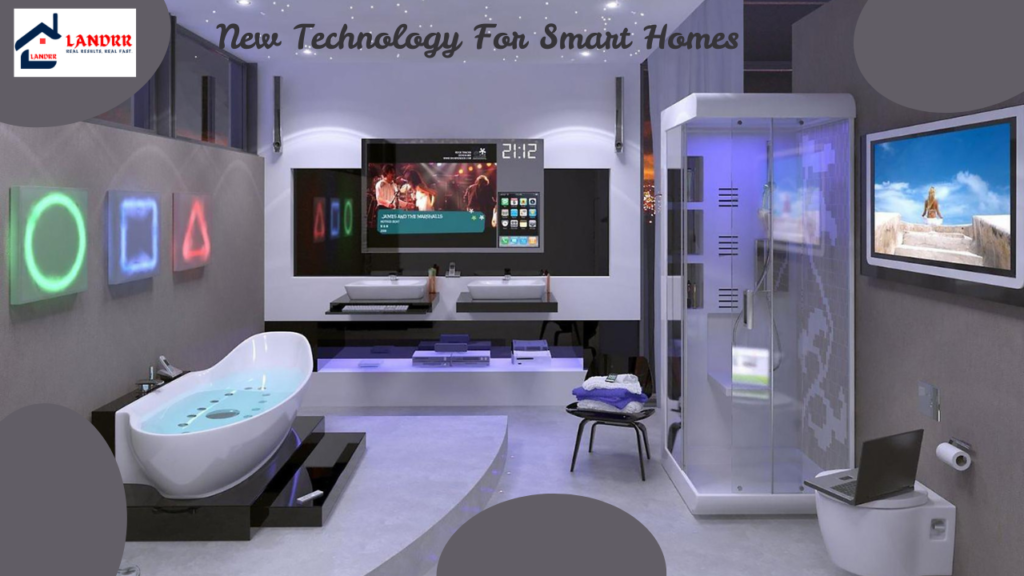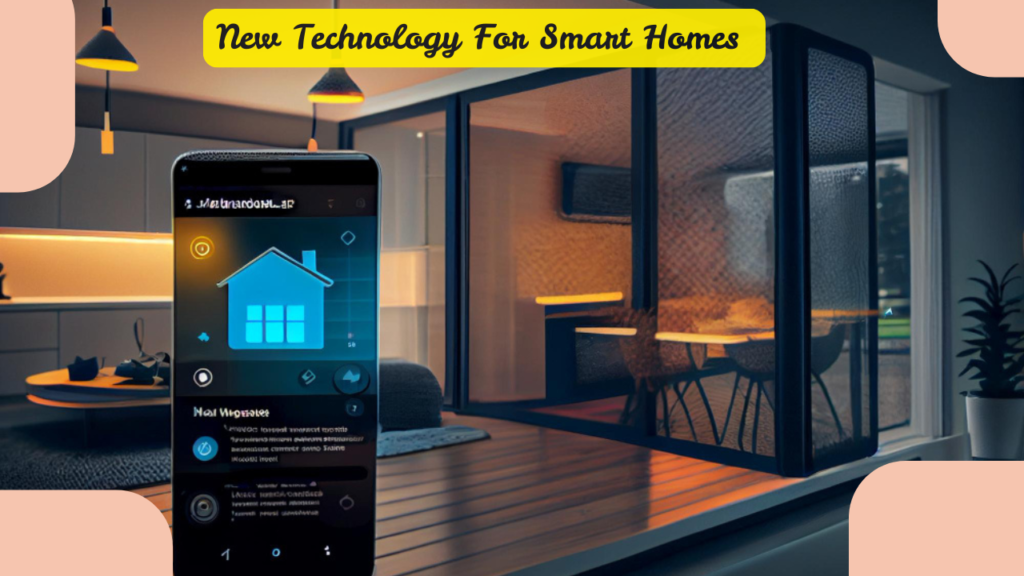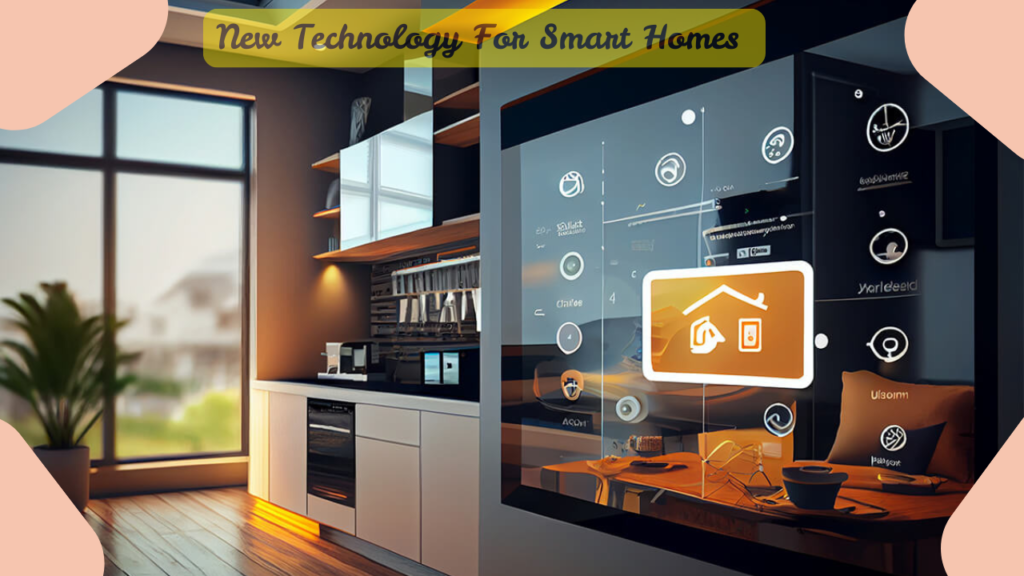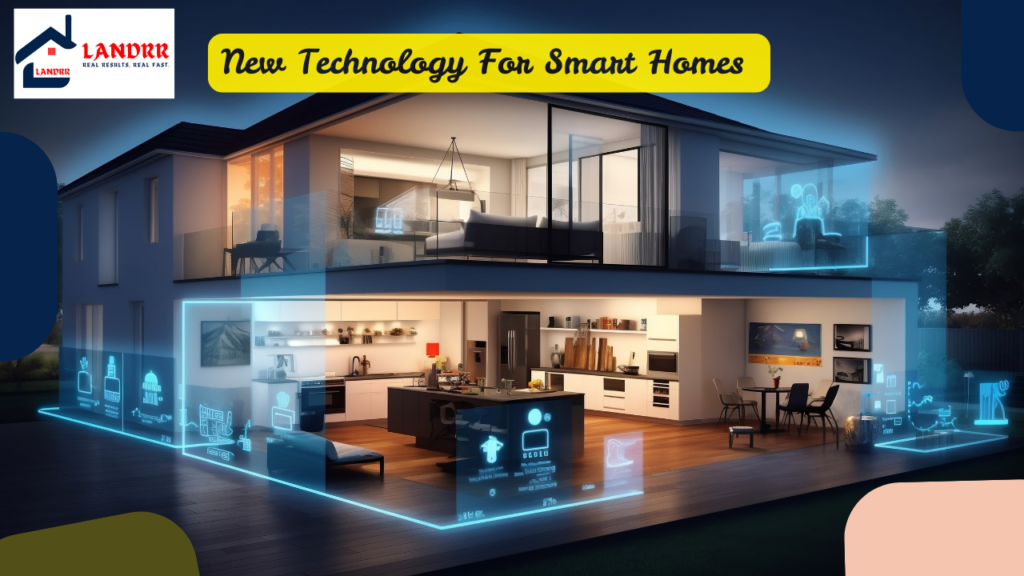6 New Technology For Smart Homes Trends:- “Uncover the latest AI home automation trends. From intelligent assistants to predictive security, see how AI is transforming smart homes in 2025. Read our detailed guide.”
1. AI-Powered Smart Assistants: The Brains Behind the Home
- Beyond Voice Commands:
- In 2025, AI assistants will move beyond simple voice commands. They’ll understand context, anticipate needs, and proactively manage the home.
- Imagine your AI assistant noticing you’re working late and automatically dimming the lights, playing calming music, and preheating the oven for a quick dinner.
- Personalized Learning and Adaptation:
- AI will learn individual preferences and routines. For example, if you consistently set the thermostat to 72°F in the evening, the AI will automate this without requiring manual input.
- It will also adapt to changes in your routine. If you have a guest staying over, the AI will adjust temperature and lighting preferences for their comfort.
- Deeper Device Integration:
- AI assistants will have tighter integrations with all smart home devices, allowing for complex automation routines.
- For instance, if your sleep tracker indicates you had a restless night, the AI assistant might automatically adjust the coffee maker to brew a stronger cup and suggest a relaxing morning playlist.
- Predictive Maintenance:
- AI will analyze device usage patterns to predict potential failures. It could alert you when your washing machine needs maintenance or when your HVAC system is due for a filter change.
- Contextual Awareness:
- AI will use data from various sensors (motion, light, sound) to understand the context of your environment. If it detects you’ve left a room, it will automatically turn off the lights and adjust the thermostat.
2. Matter-Powered Smart Devices: The Universal Language
- Interoperability Revolution:
- The Matter protocol will eliminate the frustration of device incompatibility. You’ll be able to seamlessly integrate devices from different manufacturers, regardless of their ecosystem (Apple, Google, Amazon).
- This means you can have an Amazon Echo controlling Philips Hue lights and a Google Nest thermostat, all working together harmoniously.
- Simplified Setup and Configuration:
- Setting up new smart home devices will become significantly easier. Matter will standardize the setup process, reducing the need for multiple apps and complex configurations.
- Increased Device Choice:
- With Matter’s widespread adoption, more manufacturers will produce compatible devices, giving consumers a wider range of options.
- Enhanced Security:
- The matter is designed with robust security features, ensuring that your smart home network is protected from unauthorized access.
- Local Control:
- The matter is designed to allow for local control of devices. This means that many smart home functions will continue to work even if your internet connection is down.
3. Advanced Home Security with AI Surveillance: The Vigilant Guardian
- Facial Recognition and Behavior Analysis:
- AI-powered security cameras will use facial recognition to identify known individuals and alert you to unfamiliar faces.
- Behavior analysis will detect suspicious activity, such as someone loitering near your property or attempting to force entry.
- AI will also be able to tell the difference between a pet, and a human, and also between a package delivery and a person.
- Predictive Alerts:
- AI will analyze historical data to predict potential security threats. For example, it might identify patterns of burglaries in your neighborhood and alert you to take extra precautions.
- Smart Locks and Biometric Authentication:
- Smart locks with fingerprint scanners, facial recognition, and voice control will become standard.
- Biometric authentication will add an extra layer of security, eliminating the risk of lost or stolen keys.
- Integrated Security Systems:
- Security cameras, smart locks, motion sensors, and alarms will be seamlessly integrated into a comprehensive security system. AI will coordinate these devices to provide a unified response to security threats.
- Privacy Considerations:
- As these systems become more advanced, privacy concerns will be paramount. Secure data storage, encryption, and user control over data sharing will be essential.

4. Smart Energy Management with IoT: The Eco-Conscious Home
- AI-Based Smart Grids:
- Smart grids will use AI to optimize energy distribution and balance supply and demand.
- This will lead to more efficient energy use and reduced reliance on fossil fuels.
- Solar Panel Automation:
- AI will optimize the performance of solar panels, maximizing energy production and storage.
- Smart inverters will automatically adjust to changing weather conditions.
- Real-Time Energy Monitoring:
- Homeowners will have access to detailed, real-time data on their energy consumption.
- This will allow them to identify areas where they can reduce energy waste and save money.
- Smart Thermostats and Appliances:
- Smart thermostats will learn your heating and cooling preferences and automatically adjust to optimize energy efficiency.
- Smart appliances will automatically adjust their energy consumption based on usage patterns and grid conditions.
- Energy Storage Optimization:
- Homes with battery storage will have AI systems that decide when to store energy from solar panels, and when to use energy from the grid, based on cost, and availability.
5. Health-Integrated Smart Homes: The Wellness Sanctuary
- Sleep-Tracking Beds and Mattresses:
- Smart beds and mattresses will monitor sleep patterns, heart rate, and breathing.
- AI will analyze this data to provide personalized sleep recommendations and adjust bed settings for optimal comfort.
- Air Quality Sensors:
- Advanced air quality sensors will monitor pollutants, allergens, and other harmful substances.
- AI will trigger air purifiers and ventilation systems to maintain a healthy indoor environment.
- Connected Fitness Equipment:
- Fitness equipment will integrate with smart home systems, providing personalized workout recommendations and tracking progress.
- Integration with smart scales, and other health tracking devices will provide a holistic view of the user’s health.
- AI-Driven Kitchen Appliances:
- Smart kitchen appliances will analyze your health data and suggest healthier meal options.
- They will also provide step-by-step cooking instructions and automatically adjust cooking settings.
- Remote Health Monitoring:
- Smart home devices will be able to monitor the health of elderly or vulnerable residents and alert caregivers, or emergency services if a problem is detected.
6. Immersive Smart Entertainment: The Sensory Experience
- AI-Powered Projectors:
- Projectors will use AI to automatically adjust image settings and create immersive viewing experiences.
- They can also project images onto any surface, transforming your home into a theater.
- 360-Degree Sound Systems:
- 360-degree sound systems will create immersive audio experiences that surround you from all directions.
- AI will optimize sound settings based on the content you’re watching or listening to.
- Interactive AR/VR Setups:
- AR/VR setups will become more integrated into the home, providing immersive entertainment and educational experiences.
- AI will be used to enhance the realism of AR/VR experiences.
- Smart TVs with Advanced Controls:
- Smart TVs will offer more intuitive voice and gesture controls, making it easier to navigate content.
- They will also integrate seamlessly with streaming services and other smart home devices.
- Personalized Entertainment Recommendations:
- AI will learn your entertainment preferences and provide personalized recommendations for movies, TV shows, and music.
Which interests me the most?
Of these trends, Matter-Powered Smart Devices and Health-Integrated Smart Homes are particularly compelling.
- Matter has the potential to truly revolutionize the smart home experience by eliminating the frustrating barriers of device incompatibility. This would open up a world of possibilities for consumers.
- Health-Integrated Smart Homes are very interesting because of their ability to improve the quality of life of many people. The ability to proactively monitor and improve health in the home will be a huge benefit.

FAQ based on the 6 smart home technology trends for 2025:
General Smart Home Trends
- Q: What is driving the advancement of smart home technology?
- A: Advancements in AI, IoT, and improved connectivity, along with increasing consumer demand for convenience, security, and energy efficiency, are driving these trends.
- Q: Will these smart home technologies be affordable for the average consumer?
- A: As these technologies mature and become more widespread, prices are expected to become more competitive. However, some advanced features may still be premium offerings.
- Q: How important is data privacy in these new smart home technologies?
- A: Data privacy is paramount. Manufacturers are increasingly focusing on robust security measures, including encryption and user control over data sharing. However, consumers should always research and choose reputable brands.
AI-Powered Smart Assistants
- Q: How will AI assistants become more “intuitive” in 2025?
- A: AI will analyze user habits, preferences, and contextual data to anticipate needs and automate tasks proactively, going beyond simple voice commands.
- Q: Will AI assistants be able to recognize different family members?
- A: Yes, advanced AI will incorporate facial recognition and voice recognition to personalize experiences for individual household members.
- Q: What are the risks of having very advanced AI in my home?
- A: Like any technology, there are risks. Security breaches and data privacy are the largest concerns. Also, overreliance on the systems could become a problem.
Matter-Powered Smart Devices
- Q: What is the Matter protocol, and why is it important?
- A: Matter is a unified connectivity standard that enables seamless interoperability between smart home devices from different manufacturers. This eliminates compatibility issues.
- Q: Will older smart home devices be compatible with Matter?
- A: Some older devices may be compatible through software updates or bridges, but full compatibility will depend on the manufacturer.
- Q: Does Matter improve my smart home security?
- A: Yes, Matter was designed with strong security protocols built in.

Advanced Home Security with AI Surveillance
- Q: How accurate is AI facial recognition in home security systems?
- A: Accuracy is improving rapidly, but it’s not foolproof. Factors like lighting and image quality can affect performance.
- Q: Can AI security cameras distinguish between a person and a pet?
- A: Yes, advanced AI algorithms can differentiate between people, pets, and other objects, reducing false alarms.
- Q: What are the ethical concerns surrounding AI surveillance in homes?
- A: privacy concerns and the potential for misuse of data are valid. Users must understand how their data is being used.
Smart Energy Management with IoT
- Q: How can smart energy management systems help me save money?
- A: By optimizing energy consumption, automating appliance usage, and providing real-time monitoring, these systems can reduce energy waste and lower utility bills.
- Q: Will smart grids be able to handle the increased demand for electric vehicles?
- A: Yes, smart grids are designed to balance energy supply and demand, and they will play a crucial role in managing the increased load from EVs.
- Q: Can smart energy systems work with existing solar panels?
- A: Yes, smart systems can be integrated with most solar panel setups, to improve efficiency.
Health-Integrated Smart Homes
- Q: How accurate are sleep-tracking beds and mattresses?
- A: These devices use sensors to monitor movement, heart rate, and breathing, providing relatively accurate data. However, they are not a substitute for medical-grade sleep studies.
- Q: Can smart home health systems detect serious health conditions?
- A: While they can monitor vital signs and detect anomalies, they are not intended for medical diagnosis. Always consult a healthcare professional for health concerns.
- Q: What health data is being collected, and where is it stored?
- A: This will vary by manufacture. It is very important to research what data is collected, and how it is protected.
Immersive Smart Entertainment
- Q: Will AR/VR entertainment become more mainstream in 2025?
- A: Yes, advancements in AR/VR technology and increased content availability will drive adoption.
- Q: How will AI enhance the home entertainment experience?
- A: AI will personalize content recommendations, optimize audio and video settings, and create immersive experiences through AR/VR.
- Q: Will 8k become standard in smart TVs?
- A: While 8k tv’s will be more common, 4k will likely remain the standard for most homes, due to content availability.

